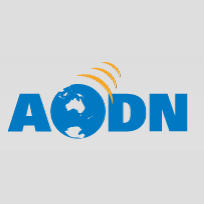Full description
The Marine chapter of the 2016 State of the Environment (SoE) report incorporates multiple expert templates developed from streams of marine data. This metadata record describes the Expert Assessment "The state and trends of quality of species and groups – whales". The full Expert Assessment, including figures and tables (where provided), is attached to this record. Where available, the Data Stream(s) used to generate this Expert Assessment are accessible through the "On-line Resources" section of this record.----------------------------------------
DESCRIPTION OF TAXONOMIC GROUP FOR EXPERT ASSESSMENT
A total of 24 species of whales (two of which comprise two subspecies) have been documented from Australian waters with a further one (Omura’s whale) likely to occur, but yet to be definitively confirmed. A number of these species (e.g. sperm whale) are distributed nationally, others are restricted to particular latitudes (e.g. Bryde’s whale) and others consist of populations that only seasonally utilise Australian waters (e.g. some of the baleen whale species).
DATA STREAM(S) USED IN EXPERT ASSESSMENT
This assessment is based on peer-review papers and reports provided by a series of researchers working on whales in Australia. Details on the specific data products used in this assessment have not been provided.
----------------------------------------
2016 SOE ASSESSMENT SUMMARY [see attached Expert Assessment for full details]
• 2016 •
Assessment grade: Good
Assessment trend: Unclear
Confidence grade: Limited evidence or limited consensus
Confidence trend: Limited evidence or limited consensus
Comparability: Grade and trend are somewhat comparable to the 2011 assessment
• 2011 • Baleen whales
Assessment grade: Poor
Assessment trend: Stable
Confidence grade & trend: Limited evidence or limited consensus
• 2011 • Humpback whales
Assessment grade: Good
Assessment trend: Increasing
Confidence grade & trend: Limited evidence or limited consensus
• 2011 • Toothed whales
Assessment grade: Poor
Assessment trend: Stable
Confidence grade & trend: Limited evidence or limited consensus
----------------------------------------
CHANGES SINCE 2011 SOE ASSESSMENT
The 2011 assessment was split across three categories. Given the lack of data on status and trends for most species it was considered more appropriate to provide one assessment, highlighting the increasing trends for humpback and southern right whales. Anecdotal information suggests that populations of most whales are stable and so it was considered more appropriate to assign status as good. With very little information on most species abundances, limited evidence of any change in populations and no long-term monitoring of populations with which clear trends could be determined, trend was identified as ‘unclear’ rather than ‘stable’.
Lineage
Statement: QUALITY OF DATA USED IN THE ASSESSMENT Data used to determine state and trend are based on systematic surveys for the relevant species. Methods and associated quality of data produced by those surveys are detailed in the publications provided in the reference list.Notes
PurposeTo describe the state and trends in populations of whales for use in the Marine chapter of the 2016 State of the Environment report.
Created: 17 06 2016
text: westlimit=102.65625000000001; southlimit=-47.4609375; eastlimit=162.421875; northlimit=-7.207031249999999
Subjects
User Contributed Tags
Login to tag this record with meaningful keywords to make it easier to discover
Other Information
EXPERT ASSESSMENT - Whales [direct download] (State_and_trends_whales_final.pdf)
(State of the Environment (SoE) reporting webpage)
uri :
https://www.environment.gov.au/science/soe![]()
global : 436e580e-ff33-4d15-a39c-b04c7d65083c
Identifiers
- global : e16cf37d-f98d-4ae8-99a1-cd936b3119c2


